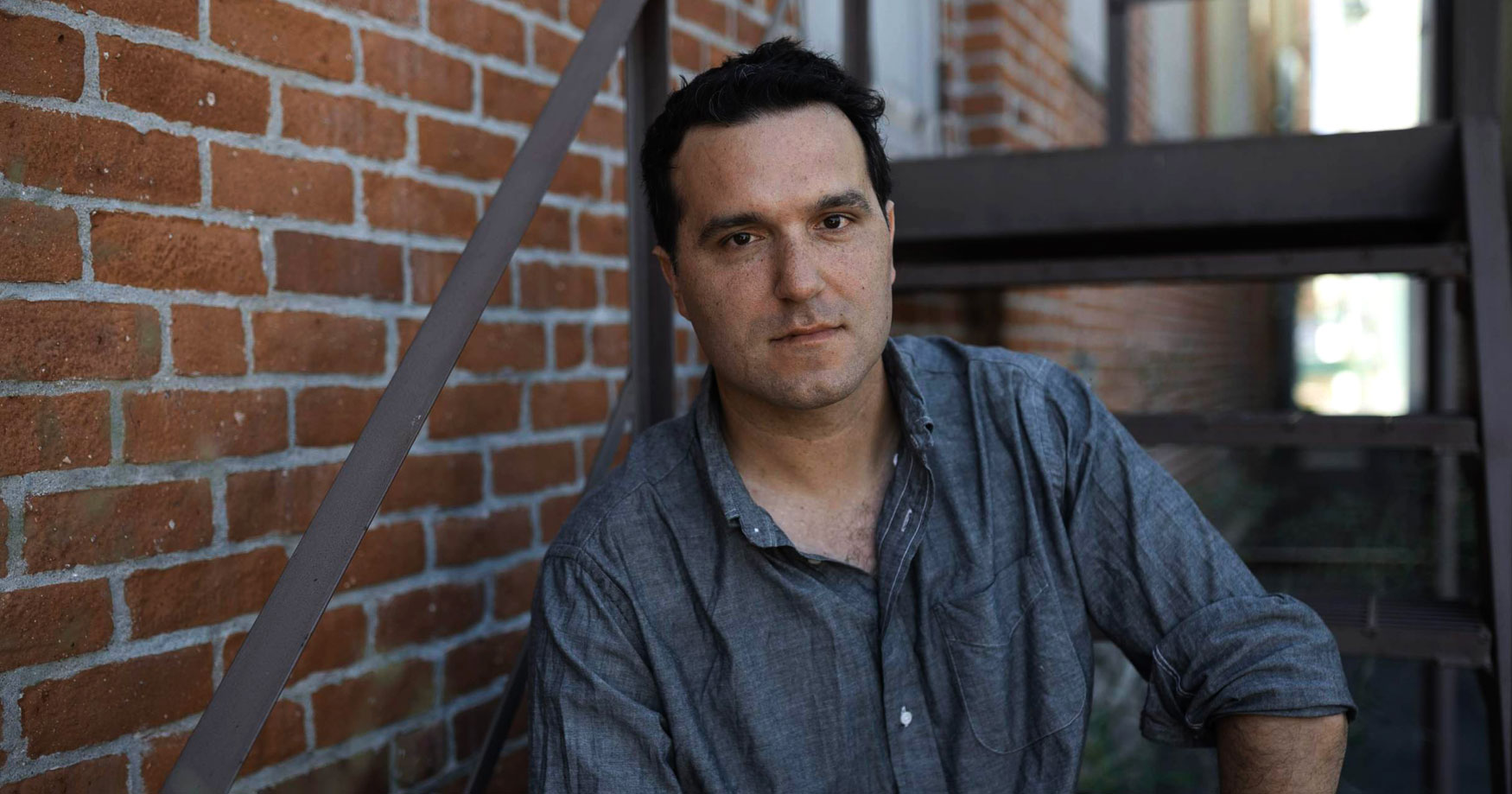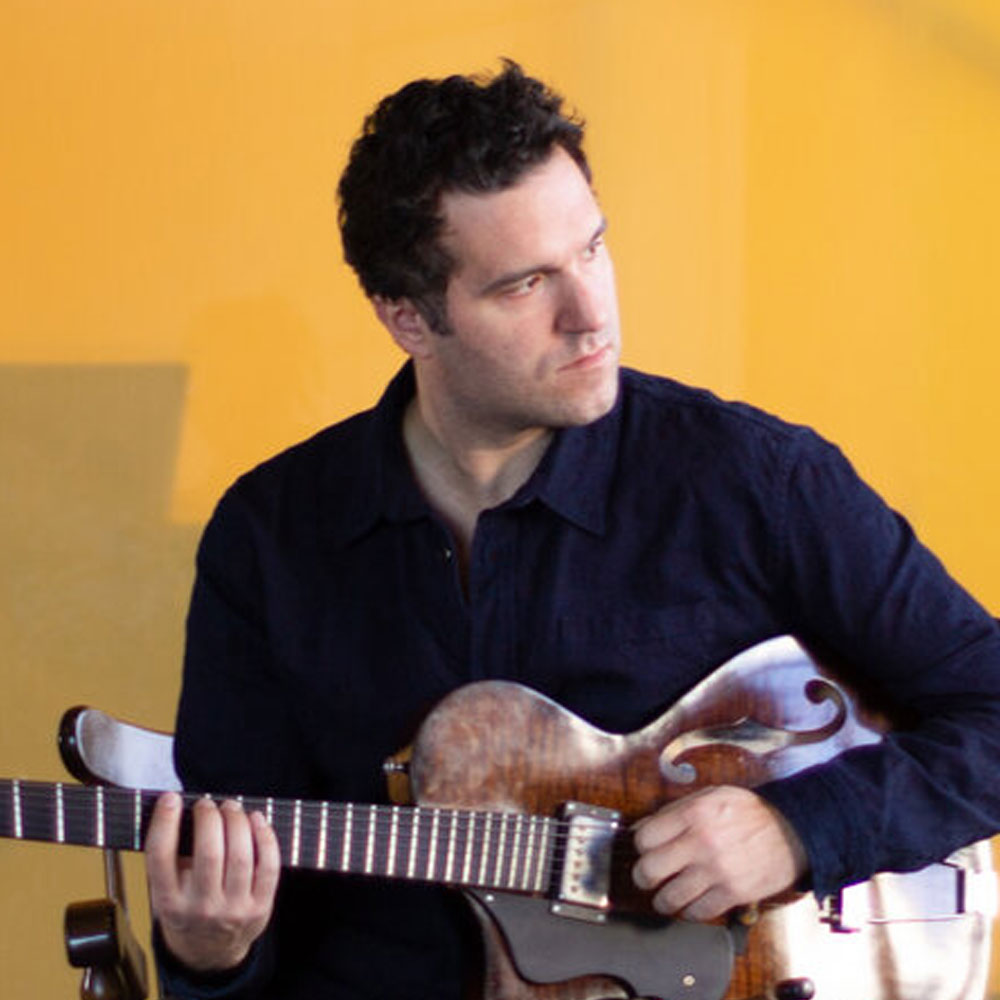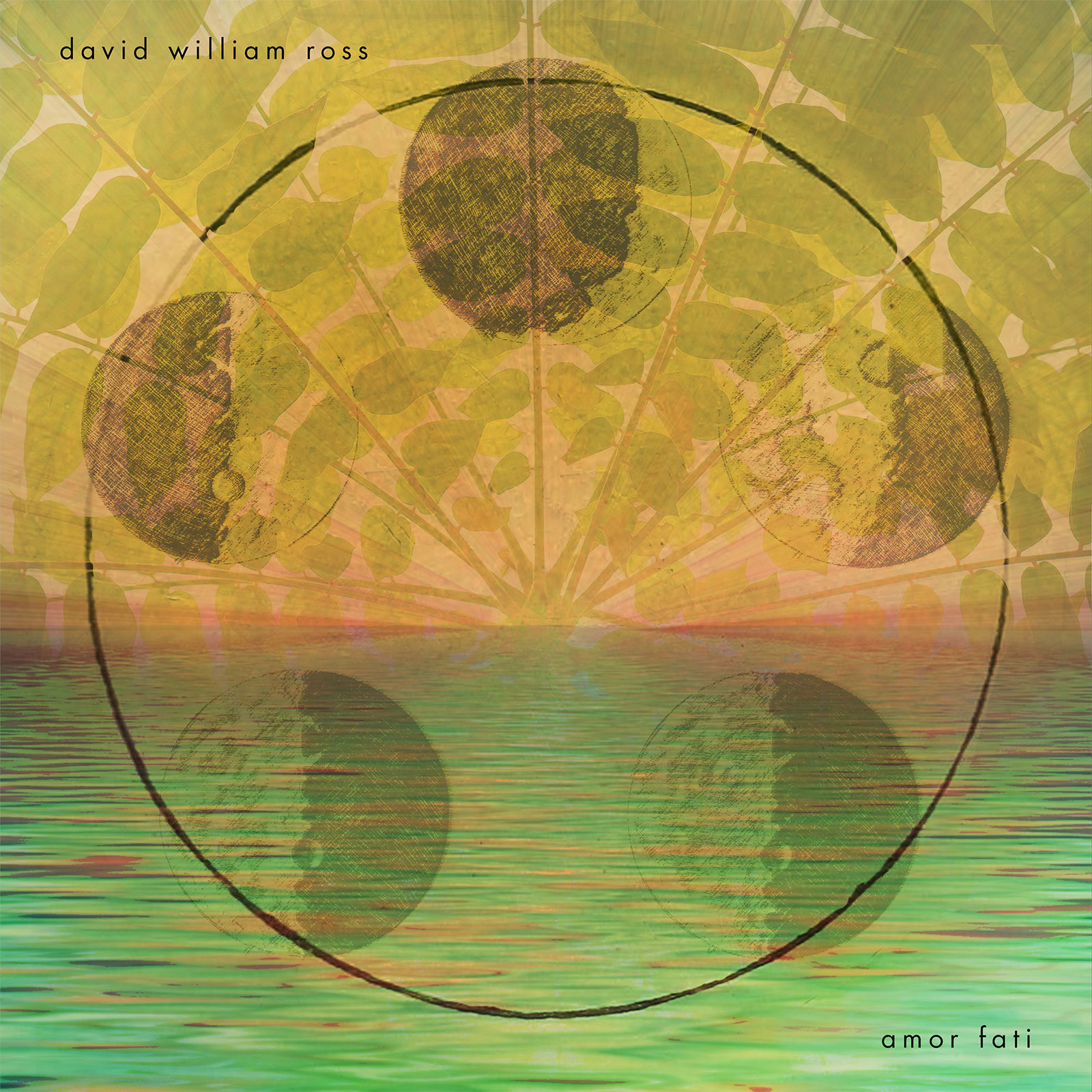
David Ross is a versatile musician with an embracing approach. He regularly performs classical repertoire but also works in jazz and other improvisatory styles. An advocate of new music, he has worked closely with composers and has recorded and premiered many works by composers from all over the world. David frequently collaborates with dancers, choreographers, and multimedia artists in creating original works. A producer and engineer, he has recorded and produced many projects, including his own.
A recent collaboration with the indie band Deep River Saints, in which he produced, recorded, arranged, and performed as a guitarist, yielded an album with a unique, developed sound praised by Seven Days VT: “Ross does more than simply produce. He uses his deep background in classical, jazz and experimental music to layer For Posterity in gossamer. David weaves a foundation of lush beauty and haunting sounds.”
Today, David is our featured artist in “The Inside Story,” a blog series exploring the inner workings and personalities of our artists. Read on to discover what David wants listeners to gain from this album…
Who was your first favorite artist growing up?
I’m not sure that I had just one favorite. My listening life went through some fairly distinct phases. As a grade-schooler, maybe first and second grade, I can remember hearing Nirvana on MTV for the first time. It had a kind of visceral quality that I hadn’t encountered before and the memory of hearing it is quite vivid. I enjoyed rock/grunge music through my childhood but soon discovered jazz through a couple of George Benson albums. These were a gateway into a wide world of artists that consumed me as a teenager. Eric Dolphy and Charles Mingus were particular favorites (and still are). As I moved to college I developed a bit of an obsession with early 20th-century composers. This is still one of my favorite periods and I find it endlessly fascinating. There is a feeling of change and uncertainty that possessed the world during that time, Freud’s challenge to the sense of self, Nietzsche’s ominous prediction “god is dead,” political states challenging enlightenment idealism, the looming world wars, etc. I consumed the second Viennese school alongside Stravinsky. Arnold Schoenberg’s music was of particular interest as you could almost feel the state of the world emanating from each note as he moved from lush Romantic works like Verklärte Nacht right up to his terse serial work. Mid-century composers also intrigued me such as Ligeti and Berio and the way they allowed everything in. Poeme Symphonique, Atmospheres, and Lux Aeterna are complete experiences in there own right. I guess my taste is eclectic still and I think it shows in the work I do as musician.
When did you realize that you wanted to be an artist?
I feel like I knew this the entire time. My mother involved me in artistic pursuits probably from the moment of my birth: painting, writing, pretty much everything artistic. When asked as a young child in school, “what do you want to be when you grow up?” I can recall saying, “a doctor”… clearly a lie of some sort. I obviously felt this is what my teacher wanted to hear because I do not think I had a good reason for saying that and most certainly never believed it! As soon as I discovered music it was a foregone conclusion. I pursued music with the tacit assumption that I would do this for the rest of my life. I sometimes wish that I had put just a little energy into the business of music, but I did not. I focused on music as an art and built my technique and knowledge and love of the art itself from a young age. And though there came a time when I needed to figure out how music can support an adult human in our society (an ongoing study…), I have absolutely no regrets and am grateful that I can spend my time creating music and art and sharing it with others.
If you could make a living at any job in the world, what would that job be?
This is an easy question: I would be a musician! Making music is hardly a job in the normal sense and I’m grateful to be doing it.
What does this album mean to you personally?
I don’t think I fully appreciated it at the time but now that the album is complete and it is about to be released, I find myself reflecting on the work Cyrcles by Frank Wallace. This is a large piece of 6 movements, about 25 minutes in length, and quite an achievement. It is his 3rd Sonata for Guitar and was written for me, for this project specifically. I asked Frank to write something large and worthy of a true concert stage on the theme of seasons, cycles, and change. He wrote Cyrcles in memoriam for a student lost to suicide at a young age and penned the notes while dealing with a surprising diagnosis himself. He is currently fighting stage IV cancer and writing about his experience on his blog – anyone interested in Frank’s work, his music, his poetry, his vision as an artist should visit his site. Reading his words makes this work feel painfully poignant. I’m optimistic for Frank and am looking forward to our next meeting but I cannot help but reflect on cycles and death and change – a healthy reflection that one often forgets in the tumult of everyday life. I’m so pleased to have this great work and that it is a focal point of this album.
What was your favorite musical moment on the album?
This is a difficult question, like choosing a favorite child. I do not think I really can do this, as I love each work so much. However, perhaps I can admit to loving Takemitsu just a little more and trusting the other children will not be offended. His work has a quality that feels slippery to me. It also escapes through the cracks just as I gain a foothold. It keeps me coming back and focuses my attention in a way few composers do. Everything is structured and placed just perfectly but it feels improvised and casual at the same time. It also leaves me with an inhalation and a question, a sort of energy that then spills into life.
What is your guilty pleasure?
There are probably many though I do not feel particularly guilty so I’m not sure… iced-soy-chai-lattes, Frasier, selvedge denim, Magic the Gathering, Billie Eilish… I’ll let you judge, do those qualify?
Is there a specific feeling that you would like communicated to audiences in this work?
I would like audiences to listen to this album in the spirit of the title, amor fati. This is why I dedicated a bit of text inside the album to the concept. The theme is cycles and change; the music will come and go like everything else we experience in life. I structured the album in a balanced way with an intentional flow from one work to the next. It is my hope that these works will be heard and absorbed but not held onto. There is nothing cognitive to the art of music. I find myself constantly challenging people when they protest this or that music saying they do not understand it or need more music theory to appreciate it. I find this is to miss the point. Music is an experience in time and as such is ungraspable to us. Listening to this album or any musical work must occur in time and be released upon its ending. It is sound only, waves of air passing into your ears, a sensual experience of the body. I hope the music my audience hears will inspire that letting go and encourage the releasing of the cognitive, and that it will cultivate awareness and presence.

David William Ross is a versatile musician with an embracing approach. He regularly performs classical repertoire but also works in jazz and other improvisatory styles. An advocate of new music, he has worked closely with composers and has recorded and premiered many works by composers from all over the world. Ross frequently collaborates with dancers, choreographers, and multimedia artists in creating original works. A producer and engineer, he has recorded and produced many projects, including his own.

